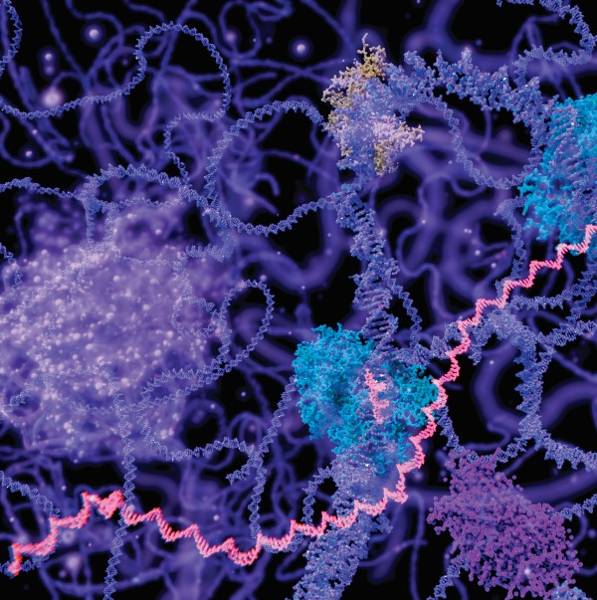WHAT IS EVOLUTION
Ernst Mayr
Weidenfeld & Nicholson
333 pp
£14.99
In the past few years it has become something of an intellectual fashion for authors to describe Darwin's theory of evolution by natural selection as the most important idea of modern times, or his best known book On the Origin of Species as having affected Western thinking as much or more than any other book, save, possibly, for the Bible. One instinctively shrinks from such claims accurate or not. Why not let the ideas speak for themselves?
Ernst Mayr has been letting evolutionary ideas speak for themselves for longer than most of his colleagues have been alive. At 98 he is properly the doyen of evolutionary biology, having researched and written about evolution since the 1920's. This means he witnessed most of what is known as the 'modern synthesis', that intermingling of Darwin's original ideas with the knowledge of genetics that arose only later, in the twentieth century, and put Darwinism on a firm footing.Mayr's fourteen previous books (and hundreds of scientific research papers) have been aimed principally at specialists. In What Evolution is, Mayr writes for a general audience. His aim is to describe, without hyperbole or extravagance, the fundamental ideas of Darwinian evolution, whilst drawing attention to the implications of a Darwinian view for understanding the biological world. What is a species? Where do they come from? How did humankind evolve?
These are questions of more than academic interest. In the enduring confrontation of creationists and evolutionists in the US, the Kansas State Board of Education has decided to accept the reality of microevolution but to reject macroevolution. Curiously, the Pope has come to the same view. What distinction between these two polar terms could have brought the Pope on the side of evolution?
Microevolution describes the genetic changes that occur within populations of interbreeding individuals over periods of time. Organised religion right up to its earthly top man has been forced by overwhelming evidence to accept that microevolution happens. Every time we look at our parents we are staring the reality of microevolution in the face: each of us is a genetic pastiche of one mother and one father. But macroevolution refers to the processes by which new species arise from existing ones. Save for contrived laboratory studies with bacteria and fruit flies, it cannot be witnessed. Rather, it must be inferred, from fossils, from resemblances, from geographic variation, and from what genes tell us.
Because it must be inferred, it can be denied: and deny it is what the church does. A precise scientific distinction allows the church to wear a cloak of scientific respectability whilst simultaneously reserving for God the issue of the origin of new species.
To understand macroevolution supposes that one understands what species are and what causes speciation. Mayr firmly supports the 'biological species concept' in which species are defined as groups of potentially or actually interbreeding individuals, although this causes him some problems. Horses and zebras, for example, can interbreed but no one considers them the same species. More awkwardly, at each point in time in the lineage leading from our ape ancestors to the present, individuals could interbreed. Does that make us the same species as chimpanzees?
On speciation, Mayr argues for geographical isolation of small populations as the principal cause. But does this mean that human racial groups are or were incipient species? This is a touchy subject as increasingly one is not even allowed to say that races exist. And yet, the great human diaspora out of Africa spread human populations thinly around the world, and largely out of contact with one another. Happily the thought police do not frighten Mayr away from taking a forthright view on this issue.
In his book The English, Jeremy Paxman describes the Church of England as an essentially 'woolly' organisation. In England at least, there are still plenty of Church of England schools to if Paxman is correct lull our children into woolliness of mind. I can't recommend What Evolution is for school children, but I can recommend it for their parents as an antidote to the woolly thinking of all kinds that abounds about evolution. Mayr writes with the brisk confidence of someone who has been propounding Darwinian arguments for many decades. His treatment of evolution is distinctive for its breadth, clarity and his unmatched sense of what matters and what does not.
What is Evolution is is available from Amazon (UK).

